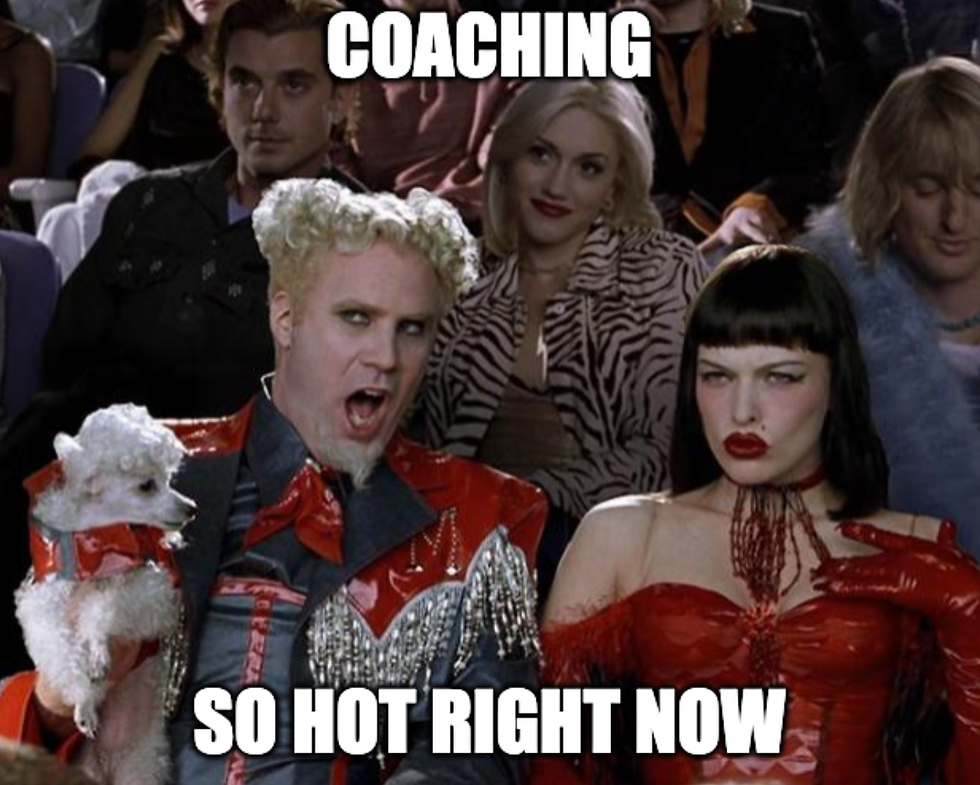Does Your Team Secretly Think You’re A Bad Leader?
- Paolo Pironi
- May 27, 2020
- 4 min read
Updated: Jun 22, 2020
The numbers show that most leaders are bad. I’m sure that every startup Leader would like their team to hail them as the greatest! But too few actually study what Great Leadership means in practice.
63% of employees have little to no trust in their leaders, according to the Edelman Trust Barometer. Ouch!
This demonstrates that being a great leader is hard. You already knew that. But do you know why? And what you can do to ensure that your leadership becomes legendary?

“Good leaders are positive and predictable. When they are negative and unpredictable, their people live in fear,” writes author and strength based coaching pioneer Mike Pegg.
There are 2 common challenges that conspire to make you negative and unpredictable, judging from my experience and my clients’. Here I describe both challenges and suggest 2 easy techniques you can apply today to overcome them.
CHALLENGE #1: THE “EMOTIONAL ROLLERCOASTER”
As a Startup Leader, you know the feeling. The amazing high you get when you land your first round of investment, when you ship your first product, when you sign your first client, when you get great feedback on your service (I felt a rush just writing about it!)
Almost immediately followed by the harrowing low you experience when investors don’t return your calls, when the product goes down and engineers don’t know why, when another client rejects your offer, or when they say your service was disappointing.
There’s no middle ground. You either feel like you’re king of the world, or like you’re a piece of... (you know). Day in and day out. Multiple times a day.
I call this the “Emotional Rollercoaster”. It’s part and parcel with startup life. It’s inevitable and we all go through it.

The fact that it’s common doesn’t make things easier though, especially when you’re a leader and your team depends on you and looks up to you. It’s hard to stay positive and predictable while riding the startup “Emotional Rollercoaster”, where certainties are short-lived and triumphs are quickly replaced by unexpected catastrophes.
“But how can I be positive and predictable when I’m feeling negative and second guessing myself?!” I’m glad you asked:
The key lies in the work of modern philosopher Maurizio Ferraris and his book “Positive Realism”: as a positive realistic leader, you should accept that reality is “unamendable”, it cannot be changed. But you should still make bets based on realistic assumptions and best guesses, and reasonably hope that your bets will yield the best possible results. This hope will fuel your positivity even in difficult times, while your confidence in the realism of your assumptions will help you stay the course and remain predictable. The British Royal Marines also have an expression for this, they call it “cheerfulness in the face of adversity”.
CHALLENGE #2: THE FALSE MYTH OF THE AGGRESSIVE LEADER
The widespread myth of short-tempered, aggressive leaders is wrong.
It doesn’t help that legends like Steve Jobs infamously embodied that personality. It fueled the myth that “you can only pull that off if you’re a genius”, which makes many leaders secretly think “I think I’m a genius, therefore I, too, can pull it off.”
Look, you might be a genius, that’s great!
But Jobs might not be the icon after whom to model every life choice: in his final days he lamented the fact that his behaviour made him lonely and alienated from his loved ones. So please ask yourself if playing the part of the hot-tempered genius is worth that to you.
Top consulting firm McKinsey suggests that leaders practice “deliberate calm”, i.e. step back from high-stakes situations and choose how best to respond, rather than react emotionally.
Here’s the easy way to apply that for you:
Whenever you’re tempted to lash out or commiserate, don’t. When you receive discouraging or even infuriating information:
- Name it for how it makes you feel (e.g. “This is infuriating” or “This sucks”), BUT AVOID judging its ramifications (so don’t say “This is a disaster”, or it will feel like it is, while all you know for now is just how it makes you feel, nothing else)
- Then also say out loud, “Let’s think about what this means for us”
- Go for a walk if you must, but don’t start talking negative
- Take the time to think and weigh implications and potential responses
That’s better, right? I’ll talk more about boosting your EQ and managing your own emotions in an upcoming post (subscribe to my blog not to miss it!)
COROLLARY, THE “RESCUER”: Do you have the opposite problem and find yourself being too lenient with the people you lead? Encouragement is fantastic, but “rescuing” is counterproductive. I’ll talk about holding everybody to the same high standards in next week’s post.

WHAT’S NEXT: BECOMING A GREAT LEADER
“Deliberate calm” and “bounded optimism” are choices. These attitudes might not come natural to you (don’t worry, we’re all on the same boat), but the good news is that they can be taught and learned. As New York Times bestselling author Kevin Kruse said,
“Great leaders are lifetime learners. They should study leadership through books and courses and ideally get a coach who can offer specific guidance.”
Once you learn the behaviours of a Great Leader, you can turn them into a habit (I will cover the practical steps to form a habit in a future post).
You might also notice that both of the challenges highlighted in this post are INTERNAL to the leader.

One post isn’t enough to teach all there is to know about Great Leadership, but this one is sure to give you a good start!
Two future posts will cover how Great Leaders master EXTERNAL factors, namely:
> How Great Leaders set strategy and steer their teams, in an ever-changing world with no certainties






Comments